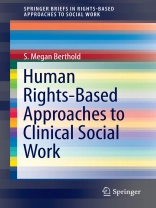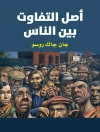This groundbreaking Brief brings a rights-based perspective to social work as opposed to the charity- and needs-based formats traditional to the field. Core principles for effective practice are discussed in the context of global human rights advocacy, from addressing individuals’ immediate issues to challenging the structures that allow continued injustices to marginalized populations. Focusing specifically on interventions with survivors (and some perpetrators) of torture, human trafficking, and domestic violence, coverage explores and explodes myths about these issues–some of which survivors themselves may believe–and illustrates the immediate application and long-term benefits of rights-based therapy. Case examples, discussion questions, resource links, and a clinician self-care section reinforce the salience of this approach, modeling practice that is ethical in its outlook and empowering in its healing.
Clinician skills emphasized in Human Rights-Based Approaches to Clinical Social Work:
- Reframing client needs as human rights.
- Cultural humility versus cultural competence.
- Building the therapeutic relationship and reconstructing safety.
- Developing trauma-informed practice and avoiding re-traumatization.
- Forensic and activist roles for social workers.
- Burnout prevention for practitioners.
Tabla de materias
Rights-based vs. Conventional Needs-based Approaches to Clinical Social Work.- Rights-based Approach to Working with Torture Survivors.- Rights-based Clinical Practice with Survivors of Human Trafficking.- Intimate Partner Violence and a Rights-based Approach to Healing.- The Use of Self in Engaging in Rights-based Clinical Practice.
Sobre el autor
S. Megan Berthold, Ph D, LCSW is Assistant Professor in Casework at the University of Connecticut School of Social Work. She is a Certified Trauma Specialist and has worked with diverse refugee and asylum seeking survivors of torture, war traumas, human trafficking, female genital mutilation and other traumas since the mid-1980s in refugee camps in Asia and in the United States. She was a clinician and educator in refugee camps in Nepal, the Philippines and on the Thai-Cambodian border. Before joining the UCONN faculty, she worked in Los Angeles for twenty years with the Program for Torture Victims and other non-profits. Dr. Berthold conducts federally funded clinical outcomes research with torture survivors and NIMH funded research examining the prevalence of torture and its mental and physical health consequences among Cambodian refugees. She frequently testifies as an expert witness in U.S. Immigration Court and has trained numerous social workers and other professionals about vicarious trauma and resilience, self-care and trauma-informed approaches to working with diverse survivors guided by cultural humility. She is a member of CSWE (serving on CSWE’s Taskforce on Advanced Social Work Trauma Education), NASW, SSWR, APHA, the International Society for Health and Human Rights (ISHHR), the International Society of Traumatic Stress Specialists (ISTSS) (appointed to the Leadership Council), and is a member and former board member of the Association of Traumatic Stress Specialists (ATSS). In 2009 she was selected as the National Association of Social Work’s national social worker of the year.












